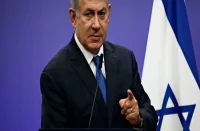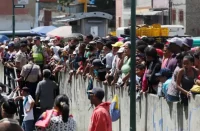
The current President of Argentine was controversial even when it came to his own electoral program. On the one hand, he seemed to pay enough attention to social policy and economy issues, but focus on international relations only minimally. The likely reason was that the people who know something about foreign policy knew who they were dealing with, and preferred to stay out of that mess. The foreign policy outline presented in Milei’s program includes three conceptual ideas: promoting free trade, restructuring the diplomatic corps to accommodate professionals, and growing relations with liberal democracies.
Obviously, those are just abstract principles, without any “meat” on them. But for reasons known, probably, only to him, Javier Milei chose them as linchpins of his foreign policy. Indeed, while being piquant or extremely provocative towards authoritarian regimes, he’s quite friendly towards liberal democracies (the U.S., the European countries).
His suggestions concerning domestic policies were extremely populist. They were riddled top to bottom with ideas that resonated at that moment (and at that moment only) with the sentiment of people driven to despair. No one was going to think too hard where they were going to find the money to implement the policies proposed by the aspiring President.
Milei is notable for thinking in non-systemic, populist ways. On top of that we can add his unhealthy liberalism and the compulsion to contrast himself as the force for “good” to the “bad” things that had happened before he took power. That would be a sufficient explanation for his flamboyant behavior, overtures toward foreign politicians and outlandish decisions that influence the domestic situation in dubious ways. He called his peer, the Brazilian President Lula da Silva,a “furious communist”, and said something similar about Gustavo Petro, the Colombian President. Nicolas Maduro, the President of Venezuela, is an “impoverished socialist”, according to Milei. Saying something like that is not going to improve the mutual relations in any way.
In the short time since taking power, Milei has already disrespected all of his closest neighbors. How is he going to build bilateral relations in Latin America and make good on the promises he’s made to the Argentinian people: mostly, to get the country out of the current deep, systemic crisis? Good question.
His position concerning China is worth a separate consideration. We are going to look at it in more detail in a separate piece, but just to make an outline: Even back in his candidate days, Milei told Bloomberg that he, “has no desire to build business ties with someone who shows lack of respect for human rights and freedom.” He added, however, that he’s not going to prevent private businesses from doing so. That’s the entire nature of the new President. He’s positioning himself as an ideological opponent to the authoritarian Chinese regime (any regime, really), but he can look the other way when it comes to money.
His value system is such that he’s advocating more for tearing down customs barriers than for preserving rights and liberties. Otherwise, he would place the latter above transient profit and cut cooperation with China. But even he understands that a step like that would be at the very least foolhardy.
Javier Milei is an extraordinary man. Everyone knows that. His extraordinary nature, however you perceive it, is reflected in his foreign policy. The Argentinian President’s highest priority is to preserve his image of a man from the outside of the system, the one who is not beholden to political elites, who acts based on his own beliefs, established rules notwithstanding. But there’s more; ideology is obviously extremely important for Javier Milei. He has a radical approach to building relations with his foreign partners. And the last thing, trade is also extremely important for his foreign policy course.
Let’s have a look at the list of politicians invited to his inauguration ceremony. That way we can gauge the general attitude to his persona from the global political elites. The first thing we notice is the absence of Brazilian and Mexican presidents. Yes, those countries are headed by “leftists” who more or less openly despise Milei, if we’re being completely honest.
From those invited to the ceremony, the following politicians were in attendance: presidents of Chile, Ecuador, Uruguay and Paraguay, Philipp IV King of Spain, Hungarian Prime Minister Viktor Orbán, Uktrainian president Vladimir Zelensky, and ex-President of Brazil, Jair Bolsonaro (as a private person). The political isolation Javier Milei faces on its own continent is a harsh reality he has to account for when structuring his policies. The largest mission (as Milei himself revealed) was from the United States, headed by Jennifer Granholm, the U.S. Secretary of Energy, and Juan Gonzalez, Deputy Assistant Secretary of State for Western Hemisphere Affairs. The Israeli mission, headed by Foreign Minister Eli Cohen, was the second most representative one.
A foreign policy swerve like that signals a dramatic shift in the approach to policy, both in Latin America, and in cooperation with former key partners. Argentina went through multiple stages in its relations with its neighboring states, but never in the recent history have these relations been as ambiguous as they are now. Considering the population’s disappointment with Milei’s course, he’s likely going to be a one-term President. That’s why leaders of Latin America are thinking ahead about how they are going to build regional relations with the successor of that madman Argentinians have voted in. He got elected, and he paid for it.
to be continued














Comments